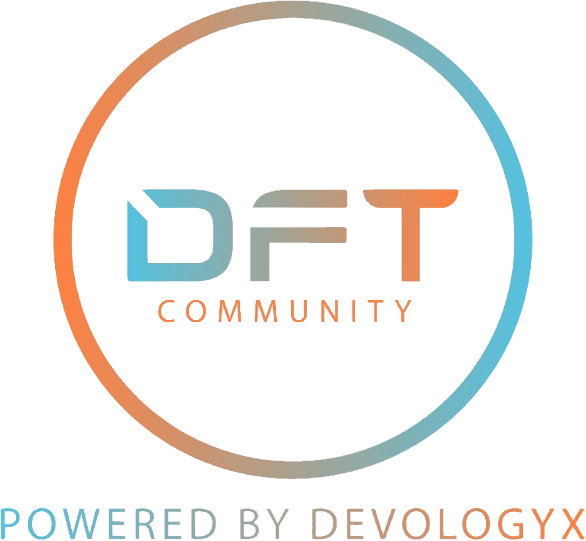Software development refers to a set of computer sciences activities devoted to designing, creating, testing, supporting, and deploying software. Software engineers build programs, test new software, recognise user needs, and improve existing software. The software development community has swift and constant changes that make continuous learning essential for a developer’s career.
Working in software development can be such a burden. Usually, developers ask themselves whether they should read books to become better at developing software. But, the real question you should ask yourself is, “Which book should you read for working in software development?”. Take note, reading books will not make you a better developer. That will call for years of experience and practice. But, through reading them, you’ll acquire insight into guiding principles that can be applied and learn to avert common mistakes during the development process.
Here are some books for working in software development. The list is incomplete as there are always new and better books on the block. But, these are likely to make a more significant impact on your software development career.
- The Pragmatic Programmer: From Journeyman to Master
Book by David Thomas, Andrew Hunt
Written and published by David Thomas and Andrew Hunt, Pragmatic Programmer is about averting typical team dynamics and project management problems and the fundamental procedures of software development. The authors discuss common issues that lead developing teams astray. One of the writers, Andrew Hunt, said, “the tech has changed, the names have changed—but the issues, the erroneous approaches and the factors that bring about difficulty are still visible.”
The book is packed with professional and technical guidance for developers, like writing flexible code or driving your team through a project. Though written two decades back, the book is still justifiable in many aspects. It teaches you a pragmatic way with tips on improving the development process. For example, the authors advise learning one text editor and fully understanding its concepts and approving the utilisation of version-tracking software for even small-scale projects. Whether you’re a new developer or an experienced one, you can apply the lessons in this book, and you’ll get improvements in personal productivity and accuracy. You’ll attain skills and grow habits and attitudes that shape the foundation for success in your career.
- A Philosophy of Software Design
Book by John Ousterhout
This 2018 book is a respective newbie to the software development book club, written by a certified software engineer John Ousterhout. A Philosophy of Software Design discusses the elementary problem associated with software design, controlling complexity. The book throws light on the philosophical issues of approaching the software design process and highlights a set of design principles to implement during software design. A Philosophy of Software Design focuses on breaking down composite software systems into modules like methods and classes that you can apply independently. The author explains programming principles that result in excellent and maintainable programs, like observing your code’s right level of abstraction. The book does not concentrate on a particular programming language; that’s why it’s less prescriptive and more applicable. The writer notes how abstractions that have plain interfaces (deep modules) but conceal composite functionality assist in reducing the complexity of programs. Deep modules do this better than shallow modules do because shallow modules have simple functionalities but complex interfaces.
- Clean Code: A Handbook of Agile Software Craftsmanship
Book by Robert C. Martin
You’ll never acknowledge good code until you see bad code, and that’s what this book shows you. Written in 2002 by Robert C. Martin, this classic concentrates on how to write code that is easy to read and maintainable. Not just for the application but for fellow developers who might work on the code in future. The book is split into three sections—The Principles, Patterns and Practices of Clean Code. In his book, the writer presents ugly, hard-to-read, maintain and understand code. He then introduces the disciplines, tools and techniques of true software craftsmanship. Clean code, with clear illustrations, shows how to refactor poor code into an easily maintainable piece. The book highlights the regular mistakes that developers make and explains the principle of object-oriented programming. Clean code is essential to amateur Java developers, it discusses examples and real case studies in Java, and it’s equally applicable to other object-oriented programming languages. The author emphasises the idea that lousy code can put a company to its knees because once you start with bad code, you continue to pile on more lousy code, making debugging harder. For code to be considered clean, it should be easily understood by other team members and end-users.
- Design Patterns: Elements of Reusable Object-Oriented Software
By Erich Gamma, Richard Helm, Ralph Johnson and John Vlissides
A 1994 masterpiece, written and compiled by four authors, Erich Gamma, Richard Helm, Ralph Johnson and John Vlissides. The authors are popularly recognised as the “Gang of Four” in the development world. Though it was written two decades ago, Design Patterns are still applicable and essential to developers who’re becoming competent in structuring their programs. The book provides insight into the three categories of design patterns. Namely, Creational design patterns: allow you to form new objects in different ways, Structural design patterns: for prototyping and Behaviour design patterns: that models different actions. The book also explains how you can create more flexible and reusable designs without rediscovering the design solutions. The authors describe and evaluate recurring designs in object-oriented systems. The book also teaches you how these significant patterns can fit into your software development process and how to leverage them to overcome design problems. Every design pattern explains the situations in which it can be applied and when it can be applied given other design constraints. This book is a must-read for developers working on complex projects and systems.
- Refactoring: Improving the Design of Existing Code
Book by Martin Fowler
In his book, Martin Fowler writes about enhancing the design of an existing code. Martin’s book talks about the refactoring process and takes time to explain how to execute the various refactorings – the behaviour of preserving transformations. The book defines refactoring as changing a software system not to change the code’s exterior behaviour but to upgrade the internal structure. This means cleaning up your existing yet working code. It involves renaming methods and breaking up switch statements into a polymorphic form. The writer explains that you can remove a wrong code and redesign it into a better one through refactoring. The book describes the seventy refactorings, the motivation for doing them, and how to execute them. One of the fundamental strategies for refactoring is to assemble the code around meaningful code groupings and avert the intermixing of processing steps. The writer goes ahead and explains the reasons why you should refactor your code, ways to recognise code that requires refactoring and how to implement it effectively regardless of the programming language you’re using.
Conclusion
These are some of the most approved and accepted books for working in software development. In case of a recommendation for a fellow developer, I would choose The Pragmatic Programmer and Clean Code for them. If you’re looking forward to strengthening your software development skills and knowledge, read one of these books or all to broaden your mind on various aspects of the software development world.


